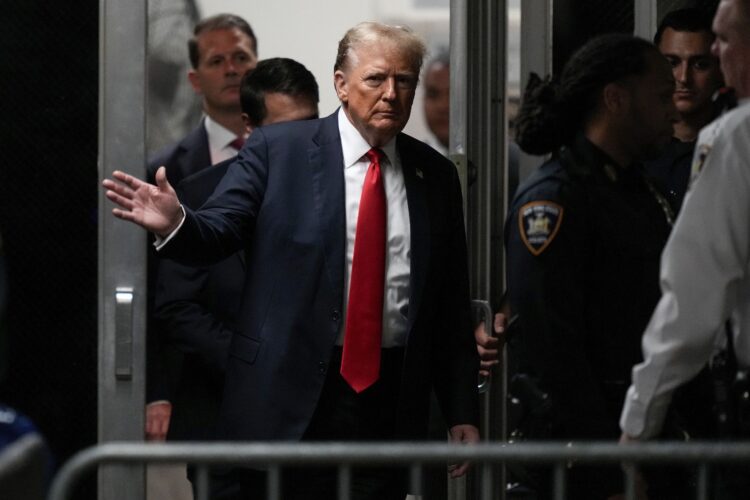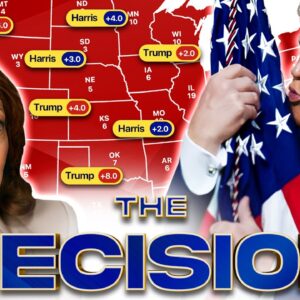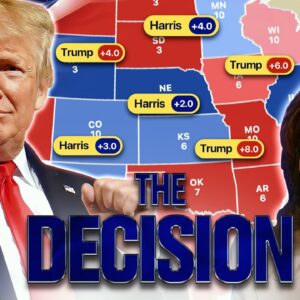The closing arguments by both the defense and the prosecution were made today in the criminal trial of Donald Trump. The jury will have to decide Trump’s fate based on the presented evidence and counterarguments. Meanwhile, Trump’s Secret Service agents have already met with New York prison officials to ensure the former president will be well-protected should he be sentenced.
The trial does not revolve around the hush money payment itself, but Trump’s alleged reimbursement to Cohen for making the payment. Further, the question raised is whether Trump properly detailed the true nature of the fee paid to Cohen in his business records. As one of the star witnesses of the case, a lot of pressure was on former Trump attorney Michael Cohen to make a convincing argument over the last several days that Trump directed him to make the hush money payment to porn star Storm Daniels. In his testimony, Cohen admitted to stealing tens of thousands of dollars from the Trump Organization, claiming he pocketed a large amount of a different reimbursement sent to him by Trump.
Defense’s Arguments
As part of his general argument that Trump did not know about the alleged hush money payment (and that he did not have sex with Stormy Daniels), defense lawyer Todd Blanche took the approach that Trump is in fact the victim of vast extortion conspiracy led by Cohen and others. Blanche painted Cohen as a biased, lying fraudster whose comments ought to be discarded altogether. He presented a cartoon Cohen had shared of Trump in orange jail jumpsuit along with audio clips of Cohen “giddy” to the point of being “maniacal” in reaction to news that Trump was indicted to insinuate Cohen is politically and personally motivated. New York Times reporter Maggie Haberman called the audio clips “among one of the most damning pieces of evidence entered to impeach Cohen.”
Blanche went on to call Cohen “the G.L.O.A.T.,” or greatest liar of all time, “the M.V.P. of liars,” and “the human embodiment of reasonable doubt, literally.” He also suggested Cohen edited the digital evidence presented on his phones including audio recordings, and therefore they cannot be taken into account by the jury.
Learn the benefits of becoming a Valuetainment Member and subscribe today!
He stressed to the jury that they must leave their opinions on Trump out of their decision, as this is the court of law and not the “ballot box.” The highlight of the defense was Blanche listing 10 reasons why the jury should have reasonable doubt about the charges, which he reportedly delivered in a run-on fashion and failed to acutely name all 10 reasons with clarity. Blanche argued the prosecutors failed to meet the burden of proof, saying they did not present a “shred of evidence” that Trump falsified documents, and that their case “should leave you wanting more.”
“You cannot convict President Trump on any crime beyond a reasonable doubt on the words of Michael Cohen,” Mr. Blanche said, adding that Cohen was unappreciative for what Trump “did and did not do for him.”
Prosecution’s Arguments
After a lunch break, the trial resumed to hear the prosecution’s closing arguments. It was led by Joshua Steinglass, an assistant to Bragg and a seasoned New York-based trial lawyer that helped lead the conspiracy and tax fraud case against the Trump Organization in 2022, a case which he also gave closing remarks for. Steinglass is known for prosecuting violent crimes, such as a case that led to the 2019 conviction of two members of the Proud Boys.
Steinglass painted Cohen as a hired gun or “fixer” who had a brawler-like “boots-on-the-ground” role at the Trump Organization. As for the idea that Trump did not explicitly tell Cohen to pay Daniels, Steinglass said: “These guys know each other well. They speak in coded language, and they speak fast.” Steinglass argued that Blanche’s argument rested on a fundamental contradiction, that Trump was not reimbursing Cohen and that the payment was a legitimate legal expense. And anyways, he argued, “This case is not about Michael Cohen” or his character, “It’s about Donald Trump.”
As to the defense’s suggestion that the prosecution was acting out of malice, Steinglass said, “There’s nothing sinister here, no manipulation,” and claimed that the evidence is clear. “This notion that Stormy Daniels is trying to extort the defendant, threatened to go public unless she was paid off. But that’s just not reality,” he added.
Commentary
The Biden campaign held a boisterous news conference outside the courthouse with actor Robert DeNiro and former Capitol Police officers Harry Dunn and Michael Fanone, who were present during the January 6th Capitol riot. Trump’s son Don Jr. mocked the campaign stunt, saying it proves the trial is a “witch hunt.”
If there was ever any doubt that this was a political persecution, the fact that the Biden campaign would hold a rally outside of the courthouse during closing arguments tells you everything you needed to know.
Election interference!!! pic.twitter.com/cGaMU2ld3h
— Donald Trump Jr. (@DonaldJTrumpJr) May 28, 2024
Trump did not mince words when he walked out of the courtroom in the morning, telling the cameras: “Make no mistake about it, I’m here because of Crooked Joe Biden, the worst president in the history of our country.”
Trump tells the media the trial is an act of political persecution: "Make no mistake about it, I'm here because of President Joe Biden." pic.twitter.com/B2ZCwPC9LX
— Valuetainment Media (@ValuetainmentTV) May 28, 2024
Background
As Valuetainment previously reported, Trump is the first president in US history to face a criminal trial, and it was the first of the four legal cases against Trump to go to trial. He faces 34 felony counts (11 related to the checks, 11 on monthly invoices Cohen submitted to the Trump Organization, and 12 related to entries in the ledger for Trump’s trust) of falsifying business records in the first degree, in connection with the alleged $130,000 “hush money” payment made by Cohen to porn star Daniels in 2016.
The charges were first brought against him by District Attorney Alvin Bragg, whom Republicans (including Trump) have deplored as “Soros-backed.” Bragg’s campaign received about $500,000 from a group that had received $7 million from a Soros organization in 2022.
The trial revolves around whether Trump obfuscated his business records by listing the reimbursement payments to Cohen as “legal expenses” in his ledgers. Trump could face probation or years in prison should he be convicted.
To build their case, the prosecutors called 20 witnesses to the stand to be questioned about matters pertaining to the payment itself as well Trump’s suspected grand scheme to influence the outcome of the 2016 election by suppressing certain stories, such as his alleged affair with Stormy Daniels in 2006 after the two met at a golf tournament in Nevada. The prosecutors claimed that two of the payments Cohen allegedly made were to The National Enquirer, an outlet that boosted Trump during his campaign.
The falsification of business records in New York is a misdemeanor, but can become a felony should prosecutors establish that the falsification helped cover up a crime. Bragg claims Trump covered up a hypothetical campaign violation he would have committed if it were to be proven that he paid Stormy Daniels hush money (a case that went to trial in 2018 and morphed into the present one).
The 34 counts, all Class E felonies, each carry the weight of a four-year maximum prison sentence. While Justice Juan Merchan said he would not hesitate to imprison Trump, he could just as easily sentence him to probation.
If the jury rules that Trump is guilty, he will most likely appeal it which could extend the process for months. But the Secret Service has already met with officials in New York jails to ensure things will run smoothly should Trump be sentenced, according to a source in the New York corrections system. As a former president, Trump is allowed to have Secret Service protection for the rest of his life. Jail guards would be in charge of protecting the Secret Service agents in addition to protecting Trump. Where Trump would be sentenced is not yet known; Mayor Eric Adams recently remarked that Rikers Island Jail Complex would be “ready” for Trump should he be sentenced there.
 Shane Devine is a writer covering politics and business for VT and a regular guest on The Unusual Suspects. Follow Shane’s work here.
Shane Devine is a writer covering politics and business for VT and a regular guest on The Unusual Suspects. Follow Shane’s work here.


















Add comment